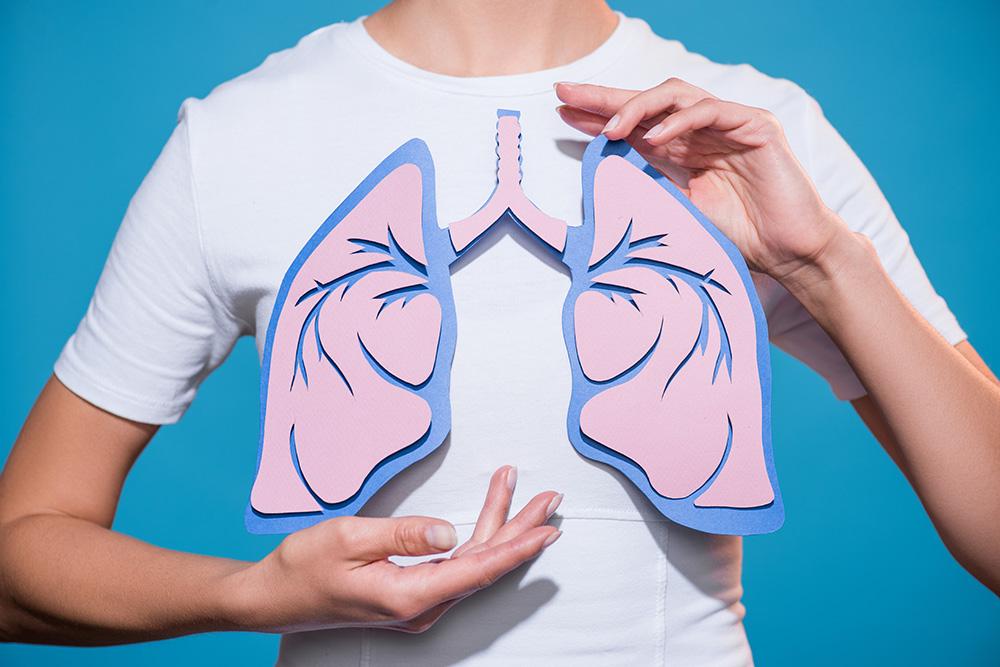If You Have been diagnosed or may have Lung Cancer
Rio Grande Cancer Foundation
Call us:
M-F: 8AM - 5PM | Sat-Sun: Closed
Lung cancer is cancer that forms in tissues of the lung, usually in the cells that line the air passages. It is the leading cause of cancer death in both men and women.
Types:
There are two main types: small cell lung cancer and non-small cell lung cancer. These two types grow differently and are treated differently. Non-small cell lung cancer is the more common type.
Sometimes lung cancer does not cause any signs or symptoms. It may be found during a chest x-ray done for another condition.
If you do have symptoms, they may include
- Chest pain or discomfort
- A cough that doesn't go away or gets worse over time
- Trouble breathing
- Wheezing
- Blood in mucus coughed up from the lungs
- Hoarseness
- Loss of appetite
- Weight loss for no known reason
- Fatigue
- Trouble swallowing
- Swelling in the face and/or veins in the neck
Tests:
To make a diagnosis, your health care provider
- Will ask about your medical history and family history
- Will do a physical exam
- Will probably do imaging tests, such as a chest x-ray or chest CT scan
- May do lab tests, including tests of your blood and sputum
- May do a biopsy of the lung
Understanding your stage:
The chance of successful or curative treatment is much higher when lung cancer is diagnosed and treated in the early stages, before it spreads. Because lung cancer doesn’t cause obvious symptoms in the earlier stages, diagnosis often comes after it has spread.
Non-small cell lung cancer has four main stages:
- Stage 1: Cancer is found in the lung, but it has not spread outside the lung.
- Stage 2: Cancer is found in the lung and nearby lymph nodes.
- Stage 3: Cancer is in the lung and lymph nodes in the middle of the chest.
- Stage 3A: Cancer is found in lymph nodes, but only on the same side of the chest where cancer first started growing.
- Stage 3B: Cancer has spread to lymph nodes on the opposite side of the chest or to lymph nodes above the collarbone.
- Stage 4: Cancer has spread to both lungs, into the area around the lungs, or to distant organs.
Small-cell lung cancer (SCLC) has two main stages.
In the limited stage, cancer is found in only one lung or nearby lymph nodes on the same side of the chest.
The extensive stage means cancer has spread:
- throughout one lung
- to the opposite lung
- to lymph nodes on the opposite side
- to fluid around the lung
- to bone marrow
- to distant organs
At the time of diagnosis, 2 out of 3 people with SCLC are already in the extensive stage..
Treatment:
What kind of treatment will I need?
The treatments for non-small cell lung cancer include
- Surgery
- Radiation therapy
- Chemotherapy
- Targeted therapy, which uses drugs or other substances that attack specific cancer cells with less harm to normal cells
- Immunotherapy
- Laser therapy
- Photodynamic therapy (PDT), which uses a medicine and a certain type of laser light to kill cancer cells
- Cryosurgery, which uses an instrument to freeze and destroy abnormal tissue
- Electrocautery, a treatment that uses a probe or needle heated by an electric current to destroy abnormal tissue
The treatments for small cell lung cancer include
- Surgery
- Chemotherapy
- Radiation therapy
- Immunotherapy
- Laser therapy, which uses a laser beam to kill cancer cells
- Endoscopic stent placement. An endoscope is a thin, tube-like instrument used to look at tissues inside the body. It may be used to put in a device called a stent. The stent helps to open an airway that has been blocked by abnormal tissue.
Disclaimer: All information in this site is intended for general information. It is not a substitute for medical advice from a health-care professional and is not intended to diagnose, treat, cure or prevent any disease. We only have access to and collect information that you voluntarily give us via email or other direct contact from you. We will not sell, rent, or otherwise disclose your information to any third-party. We will only use your information as necessary to respond to your requests. Read full disclaimer here.


